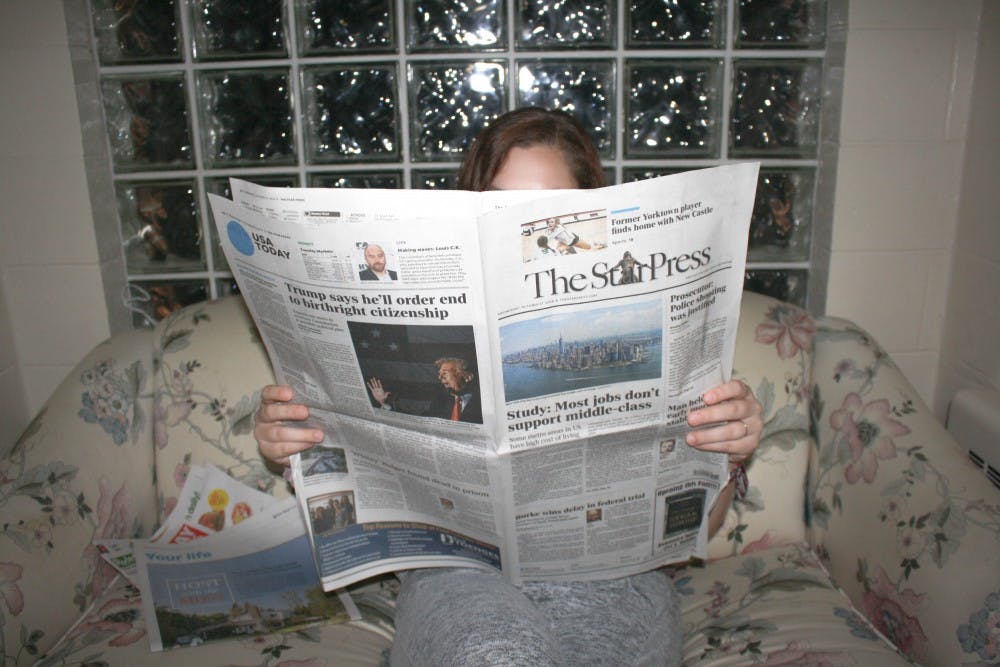Jakob Miller | Contributor
Fake news is by no means new: in 1835 the New York Sun ran a set of stories about the fantastic beasts that had just been discovered on the moon. Surprisingly, the story turned out to be false and the paper retracted their claims - but not before they had sold quite a few copies.
Today, the fragmentation of the media market, the lowered barriers to entry and the rise of algorithms delivering streams of personalized content have opened the floodgates for a new wave of fake news that mimics the sensationalist headlines of real sources. No, presidential alerts don't let the government take over your phone's camera. No, Obama didn't ask for a life-size bronze statue of himself. No, Betsy DeVos doesn't think that 40 percent is 'more than half.' But none of that stops people in places like Veles, Macedonia from churning headlines like those out on an industrial scale.
In one sense, this could be seen as just a relatively harmless vice. We all like feeling affirmed and being told we're right. You're more likely to watch, say, Fox or MSNBC if you are on the political right or left, respectively. Is indulging in a few less-than-truthful but exciting headlines really any worse than watching a partisan news source, or binging some relatively mindless entertainment?
Well, yes.
Sometimes, people take false stories very seriously, and their actions can have real consequences despite their fabricated foundation. The Comet Ping Pong shooter, for example, was motivated by a set of false stories about secret child abuse conspiracies. Someone persuaded to change their vote for a candidate based on a fake headline is a similar, if less dramatic, example. Such persuasion, thankfully, is rare, as we all tend to read only those stories that reinforce what we already believe. Fact-checking, also, promises at least a partial remedy as Facebook develops automatic systems to detect and mark fake stories.
Fake news, however, can have a very real cost, even if it is never actually believed. As shock and outrage become the new normal, the growth of fake news harms our ability to react appropriately to stories that are actually true.
As an example, imagine that you have a coworker with a habit of constantly playing loud music. It might annoy you for the first few days - but a year later, you'd almost certainly have tuned it out. Your brain would have filtered it out in the same way it does a bad smell over time. We can get used to almost anything.
Reading a news article, understanding it, and integrating it into our beliefs and our future actions takes an effort on our part. If a story about political misconduct is a relatively rare or isolated incident, then we're more likely to take it seriously as it stands out. But if every headline inspires outrage, then our well of righteous anger runs dry. If every story is shocking, then the shocking is merely mundane. The real danger of fake news is not that we'll believe it - but rather that because of it, the truth will vanish into the chaff.





